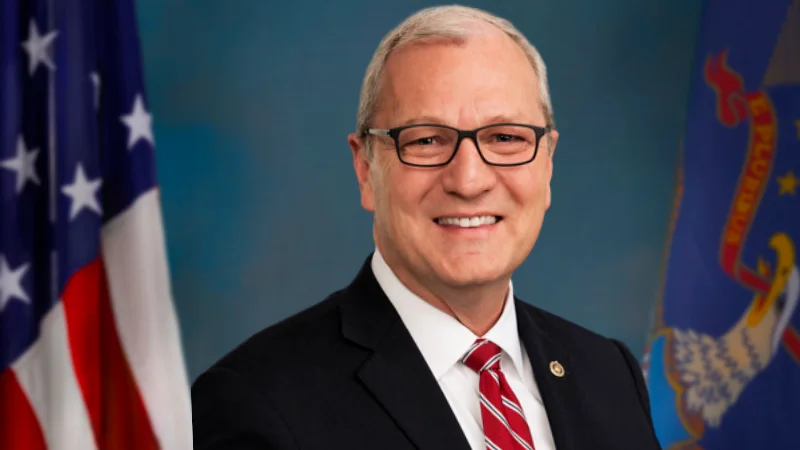Senator Kevin Cramer, US Senator for North Dakota | Senator Kevin Cramer Official website
Senator Kevin Cramer, US Senator for North Dakota | Senator Kevin Cramer Official website
U.S. Senator Kevin Cramer (R-ND), a member of the Senate Environment and Public Works Committee, responded to the U.S. Environmental Protection Agency's (EPA) recent proposal to repeal the 2009 endangerment finding. The original finding, made during the Obama administration, determined that current and future greenhouse gas concentrations—primarily carbon dioxide—pose a risk to public health and welfare. This finding has been central to efforts mandating reductions in greenhouse gas emissions through policies such as the Clean Power Plan and stricter vehicle emission standards under both the Obama and Biden administrations.
These regulatory actions have faced repeated legal challenges, with courts striking down related rulemaking processes on several occasions. Congress has also not given explicit authorization for these regulations.
Senator Cramer stated: “EPA Administrator Zeldin and President Trump certainly got this one right. They listened to the voice of reason and they clarified the role of the endangerment finding in our energy and environmental policy,” “Congress, the voters, and the Supreme Court certainly have all repeatedlyweighed in and rejected the heavy-handed, command and control approach that the Obama and Biden administrations mandated when they relied upon this flawed endangerment finding and they used it to upend American energy. Power plants in the United States are really only responsible for a very small and a declining percentage of global greenhouse gas concentrations. Their contribution, frankly, is dwarfed by the emissions from large polluting countries like China and India where they are building new power plants at a very rapid pace. And by the way, their power plants don’t have the technology that actually reduces greenhouse gas emissions like we do. Increasing energy costs, decreasing grid reliability, and kneecapping economic competitiveness is really the real danger here that we have to avoid. Thanks again to Administrator Zeldin and President Trump for recognizing America’s energy excellence. I encourage North Dakotans and Americans, but I really want North Dakotans to make their voices heard throughout the public comment period as they draft new rules”.
The share of U.S. carbon dioxide emissions globally has decreased since 2009 due to factors such as increased shale gas production, federal regulations affecting coal use during President Obama's tenure, and ongoing industrialization worldwide. Current data shows that both total annual U.S. CO2 emissions and per capita emissions are continuing on a downward trend without binding greenhouse gas rules in place. Projections indicate that by 2050, U.S. power generation will account for less than 0.2% of global contributions; this change would result in an estimated impact on global temperature of less than 0.1%.






 Alerts Sign-up
Alerts Sign-up